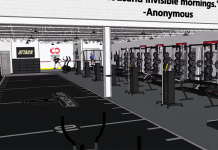Being upside down at college usually refers to hanging out a window by your heels or participating in some bizarre fraternity prank. But when you start talking in these terms in reference to paying for school, all the fun and games come to a painful stop.
A recent study from the Pew Research Center on Americans’ views toward higher education points toward the nation’s souring on the cost of college — a perennial debate, I know.
Some 57 percent of Americans believe that the current higher education system in the U.S. “fails to provide students with good value for the money they and their families spend.”
What is more disturbing, however, is the amount of debt being racked up by young adults just to pay for their undergraduate degrees. According to NPR in May, “the amount of money Americans owe on student loans recently exceeded the nation’s credit card debt.”
With a national government that is setting a horrible example for fiscal responsibility, I wonder what these adults emerging from college with such massive debt will do to balance their finances. The Pew study found that many of those who had taken out a substantial student loan had a harder time paying other bills and buying a home, and reported that their debt had an impact on their career choice.
Another strange and discouraging trend I have seen is students remaining in school to pursue advanced degrees, more out of delaying their inevitable loan payments then in pursuit of academic advancement. Though it is true that the weak job market may be driving these decisions, I worry about those young adults that will emerge from their ivy-covered walls with a cold dose of financial reality.
There is no doubt in my mind that a college education is worth it. The real challenge is avoiding mountains of debt that will saddle you with undue weight as you enter the professional job market. There is no quick fix or easy answer, either. I guess it heightens the importance of good planning and being willing to be financially flexible as a family and as a young adult trying to work your way through your degree program.
I do believe that banks, schools, and other financial providers are culpable, too. They should be held accountable for setting such easy terms, high costs, and offering loans to those they know will have trouble paying them off.
It will be hard enough for these young people to make their way into the professional world without worry about the inevitable shakedown from their creditors after graduation.
As we all know, being upside down for too long makes you feel dizzy and sick.












